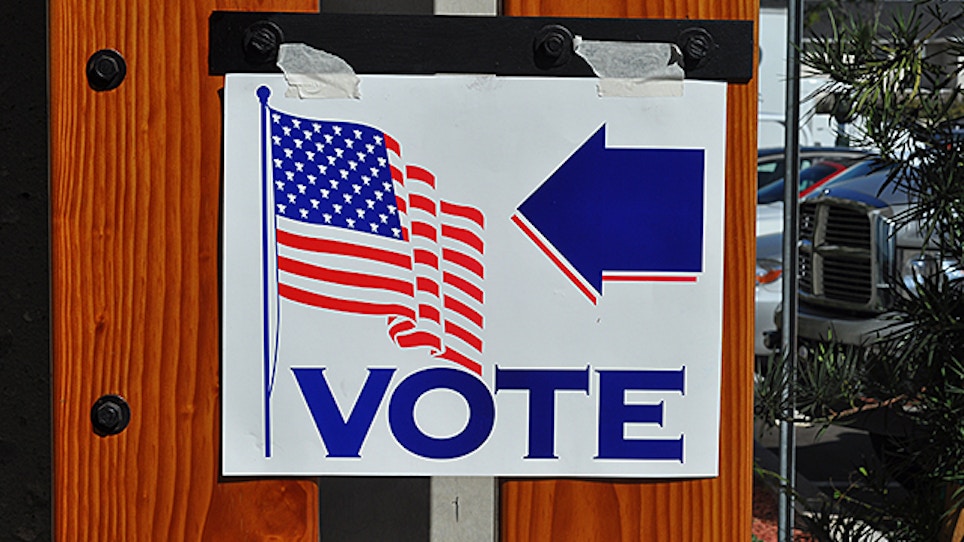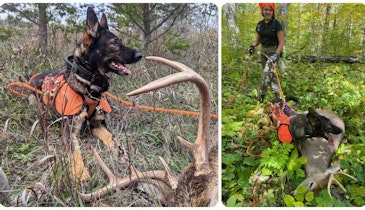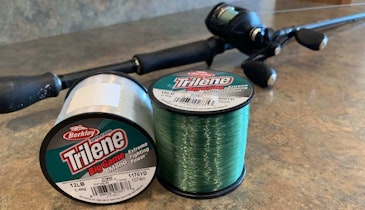Well, it’s that time of year again, and unless you’ve been living under a rock or spending way too much time in the treestand, you should recognize that this year’s election is shaping up to be a critical one for many hunters and shooters across the country.
With control of the U.S. Senate at stake, several key gubernatorial contests in states that passed anti-gun laws and ballot measures that could influence national trends in hunting and firearms ownership, the Nov. 4 polling could be as important as the Democratic takeover of Capitol Hill in 2006, observers say.
Kentucky
Several key Senate races have advocates on both sides of the debate enlisting their supporters for a win, including one in Kentucky between Republican Sen. Mitch McConnell and Democrat Alison Lundergan-Grimes, the state’s Secretary of State. McConnell is beating back a tough challenge from Lundergan-Grimes, with each putting out political ads showcasing their advocacy for firearms ownership.
Though the National Rifle Association and other groups have swung in to help McConnell, the longtime senator and Minority Leader is in a statistical dead heat with Lundergan-Grimes as Nov. 4 approaches.
Colorado
Colorado has two tight races that could serve as either an endorsement of new gun laws, or a wholesale rejection of restrictions on firearms ownership. Not long after the school shooting at Sandy Hook Elementary School in Connecticut, Colorado Democratic Gov. John Hickenlooper ushered through legislation restricting firearm magazine capacity and requiring background checks for private sales. Two state senators were pushed out of office last year in reaction to the new laws, and this year Hickenlooper is facing a stiff challenge from Republican Bob Beauprez.
With both tied at 46 percent going into the Nov. 4 polling, the gun issue is mobilizing voters on both sides, analysts say. Hickenlooper has tried to walk back his anti-gun push, telling a group of sheriffs he should have listened to voters more carefully before enacting the laws. Nevertheless, resentment from Coloradans outside the urban centers of Denver, Boulder and Colorado Springs is pushing Beauprez into contention.
Likewise Colorado incumbent Democratic Sen. Mark Udall is having a hard time keeping hold of his seat, with Republican challenger Cory Gardner eking out a slight lead in recent polling. Udall voted in favor of the post-Sandy Hook national gun control push and carries an “F” rating from the NRA on gun rights.
Connecticut
Democrat Connecticut Gov. Dannel Malloy, who signed into law one of the toughest firearms restrictions after the Sandy Hook massacre, is also facing a tough challenge from Republican Tom Foley.
The race has become ground zero for both sides of the gun debate, with anti-gun billionaire Michael Bloomberg and firearms lobby group The National Shooting Sports Foundation duking it out over the airwaves with competitive ads taking potshots at each candidate’s gun policies.
A loss for Malloy would represent a crushing blow to gun control advocates and a major rebuke of gun and magazine bans, observers say. The NRA calls Malloy “a true enemy of gun owners’ rights,” and both Foley and Malloy are tied in recent polling.
Washington
In Washington state, two competing ballot initiatives have the potential to either bolster gun control advocates, or take the wind out of further restrictions of firearms ownership and transfers. Ballot initiative 594 would make it a crime to sell a firearm to anyone outside an owner’s “immediate family” without a background check and would require local law enforcement to sign off on any sale of a handgun.
Gun rights advocates placed a competing initiative on the ballot that would protect firearms owners from seizure without due process and would block any background check laws that were stricter than federal ones.
Alabama
In Alabama, voters will decide whether to amend the state’s constitution to protect the rights of gun owners and force any judge to use so-called “strict scrutiny” when deciding if a gun law is legal. Amendment 3 argues “every citizen has a fundamental right to bear arms” and would protect Alabamans from “international treaty or law [that] shall prohibit, limit, or otherwise interfere with a citizen’s fundamental right to bear arms.”
Amendment 3 is seen as a significant bellwether as a broader national debate continues over carry rights, which many argue strikes at the Second Amendment’s clause referring to “bear arms.”
Maine
Lastly, Maine is set to vote on whether hunters can use bait, dogs and traps to hunt the state’s population of black bears. The initiative has sparked national interest among animal rights advocates who argue the tactics are cruel and local hunters — including the state’s game commission — who argue the hunting rules work to keep the top predator’s population in check.






